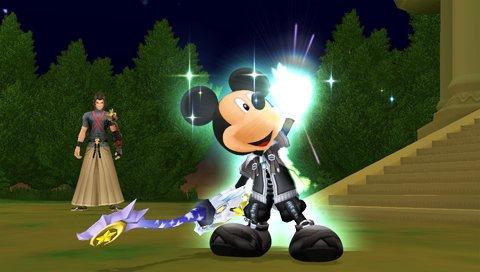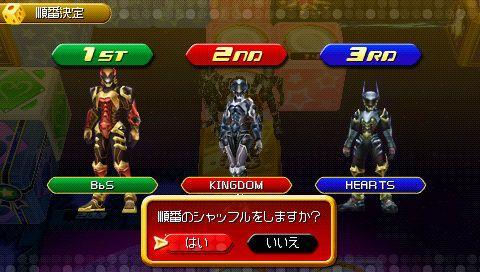
Fable III Q&A
We were provided with the opportunity of chatting to a duo of Lionhead Studios' stalwarts, Josh Atkins (Lead Designer) and John McCormack (Art Director) about the release of their latest RPG effort, Fable III.
Within, we talk the effects of the players decisions, the future of co-operative play within the series, the quirky qualities of British humour, the pressures of such an impressive array of acting talent and even get a little sensitive in regards to the importance of emotion.

RPGSite: One of the staple elements of the Fable series has been the choice between Good/ Evil decisions. From what we’ve seen today these have clearly been taken to another level, but will these have a more profound impact on the storyline, or will they just alter environments and how NPC’s react to the player?
Josh Atkins: They do have an impact, and I think the longer you play the more profound that becomes. So, it starts with it really just being about your hero and how the world will treat your hero based upon those decisions. Once you become the ruler, the morale choices are far bigger. The goal is to make the ruling section feel like you can impact the world, and that the choices you make will change it. They’re quite deep, and quite impactful.
RPGSite: The narrative within the series has always sought to be compelling, yet many were left disappointed following the conclusion of Fable II. Do you feel that players will be satisfied with the outcome of Fable III?
Josh Atkins: Well, I hope so.
John McCormack: It’s much more satisfying this time.
Josh Atkins: I think the interesting thing, not meaning to dwell on the past, I remember being in the conversation about the end of Fable II. One thing that is important is that we always try to do things that are different, and the thing that really makes the end of Fable II powerful isn’t the Lucien moment, it was the choice. That’s the thing that people still talk about, and I think for us this time we’re definitely doing some different stuff and hopefully it’ll be equally as impactful in a different way.
RPGSite: Peter Molyneux has always placed great importance on the player feeling emotion within his titles, is this something that the development team share?
Josh Atkins: Yeah, that’s a key word. Even when he’s not there, that’s a question. There’s two questions that he asks a lot, and I think they’ve become questions that we ask ourselves now which I think is a really good thing. Probably the most important one is, “What do you want the player to feel?” I think that’s a pretty unusual development question, I don’t think that a lot of developers ask that. Not that I dislike testosterone filled action-games, I enjoy them, but you kind of get that visceral thing and that’s really the emotion that gets pulled. Whereas I think for us we definitely get challenged across every front to pull an emotion from the player.
RPGSite: For me, Fable II seemed to centre very much on the player’s journey to becoming a hero, with much of the emotion being built through the companionship of the Dog. Within Fable III, it seems that there is a greater emphasis on the emotional impact of the consequences of your decisions and how they impact those around you. Was that your aim?
John McCormack: I would say so, the Dog is still there as a staple element and players from Fable II will relate to that. It’s a very human story, and we’re getting a lot of emotion from people now because of the global effects of what the hero can change.
RPGSite: In trying to connect with players, Lionhead has amassed an array of British voice talent for Fable III. Do you feel that this was important to further allow players to engage with the narrative?
Josh Atkins: Personally, it was a scary choice because basically all of a sudden we’re writing for John Cleese, Simon Pegg, Ben Kingsley etc, and it raises the bar on our writing team of two quite substantially, because the quality of the work needs to be significantly better.
John McCormack: I think even on the art side, you’re sitting with a concept artist and they’re sketching a character and you’re going “Do you know that’s Ben Kingsley?” and they suddenly start drawing a wee-bit harder. *laughs*

RPGSite: Do you feel that there are certain elements that define the Fable series ‘formula,’ such as the combat system, or is it continually evolving?
Josh Atkins: I don’t know if I’d call it a staple, I think the thing that has been true in all of them is accessibility and that’s been important. We don’t really want to build something that is suddenly really complicated and hard to work. But one-button combat I think we’ve done better this time than in Fable II, but it isn’t something that we’d have to do again as a requirement.
John McCormack: It’s a case of looking at what worked and improving on it, whilst maybe ditching the stuff that didn’t. We’re on the third iteration of Fable, and we’ve definitely, in my view, have gotten rid of some of the things that didn’t work.
Josh Atkins: I think there’s also the stuff that we get tired of, to some extent. A little bit of the trick is entertaining. It’s a good team, it’s a tough team, and very, very spirited, lots of opinions, good opinions, and if we get tired of doing something, we’re not going to do it well and therefore we don’t want to do it anymore.
RPGSite: The co-operative side of Fable III has now been expanded to a level that I’m sure many are surely going to be looking forward to diving into over Xbox Live. However, something that hasn’t been included within the series so far are specific co-op missions – would these ever be considered in the future?
Josh Atkins: You know we talked a lot about that, and I think that’s a really interesting question. We’re not doing it now, because for us the main thing we’re trying to do is tell a story. A lot of games make an allowance when they do that where the second player isn’t a participant of the story, because really, unless you build that way from the start, it’s not something that will work obviously transplanting another appendage onto an existing narrative. But it is an interesting idea, and it’s certainly something worth thinking about for a future.
RPGSite: There’s always plenty of quirky British humour evident through dialogue and side quests, is this something that you feel adds to the identity of the series?
Josh Atkins: I think an interesting thing that we haven’t talked about today yet, was this idea of trying to blend humour with the darker story. What’s funny is that when we were working on the game I was really afraid that it was going to be schizophrenic. Honestly, we were sat there in a room sometimes talking about “We’re going to have players collecting Chickens in a Chicken Suit, right after a serious plot moment. How do we feel about that?” Actually, the blending works well. I think you have what I’d say is a core which deals with some very mature themes, and the stuff around it which is around it is far funnier and lighter.
RPGSite: Is there a certain side story that you think our readers shouldn’t miss?
Josh Atkins: My favourite of the side stories is that one that is called ‘The Game,’ and it’s these three wizards that you’ll have to come across. Keep an eye out for that one, we’re quietly proud of it.
John McCormack: That one is an absolute belter *laughs*
RPGSite: Finally, Peter [Molyneux] can at times come out with some quite negative statements, with his most recent being that he feels that he’s never made a great game. When he says things like that, does it cause any disruption within the studio?
John McCormack: I think everybody who works for Lionhead knows who Peter is, and he is a true inspiration for a lot of people there. If he goes and says something like that to the press, then it’s seen more as a challenge for the team.
Josh Atkins: There shouldn’t be the impression that he goes half-cocked. We do talk about everything and he does ask “Can I say this? Can I say that? Do you think this is fair?”The thing that is amazing about him is his ability to inspire people outside of the studio too. It’s a skill that I think he’s one of a kind at. He really does something that no one else can do.